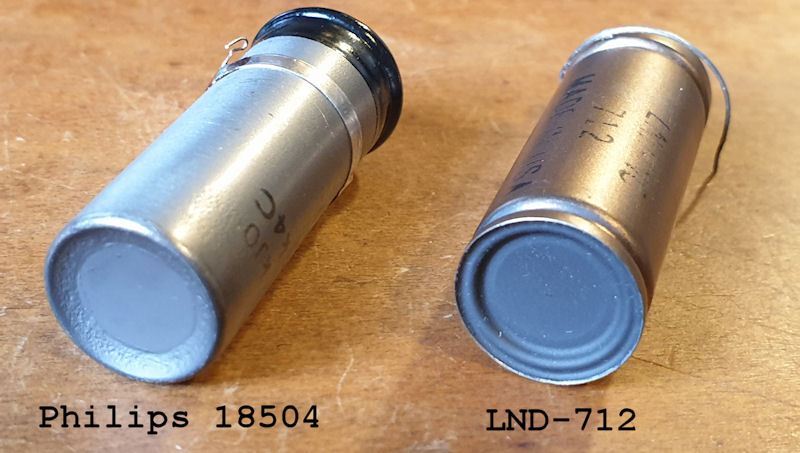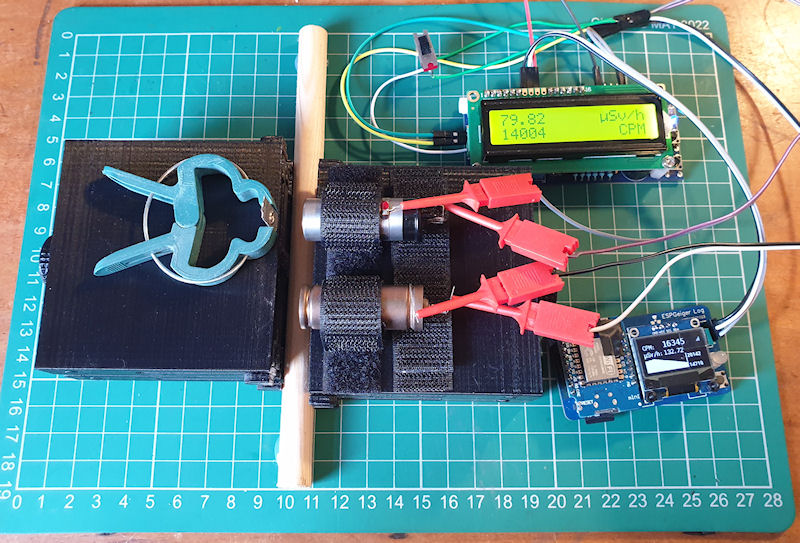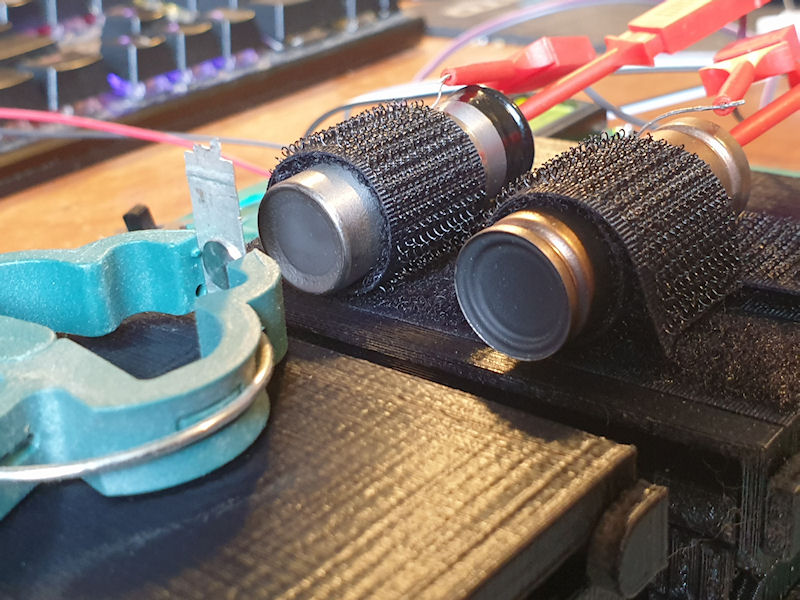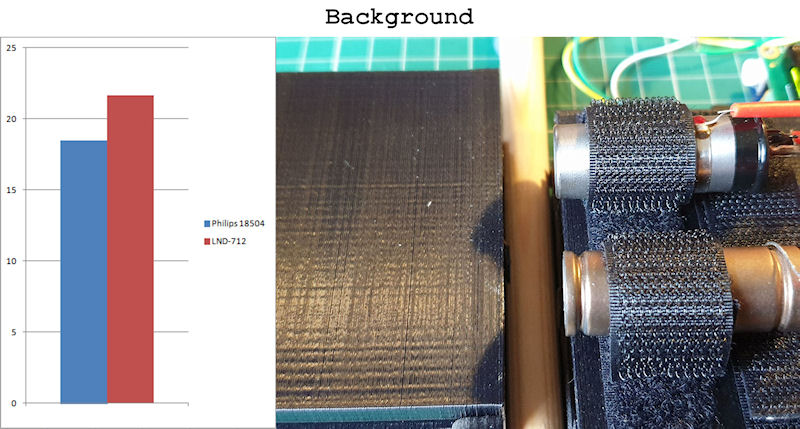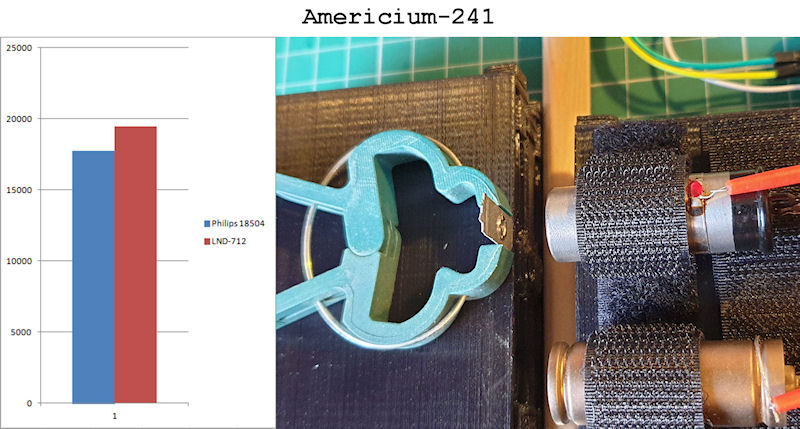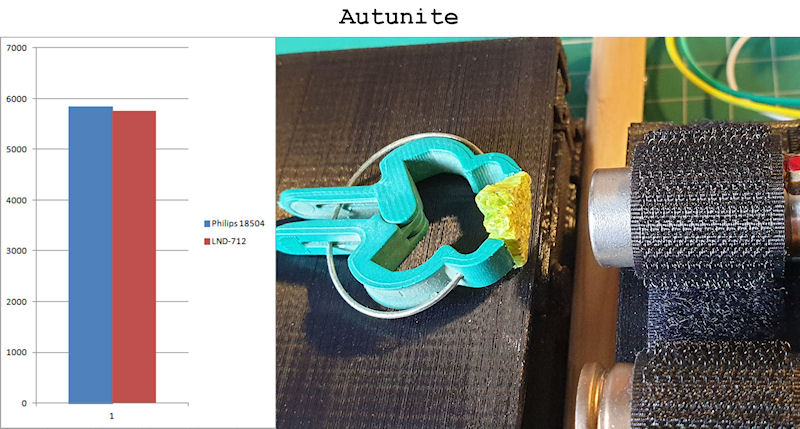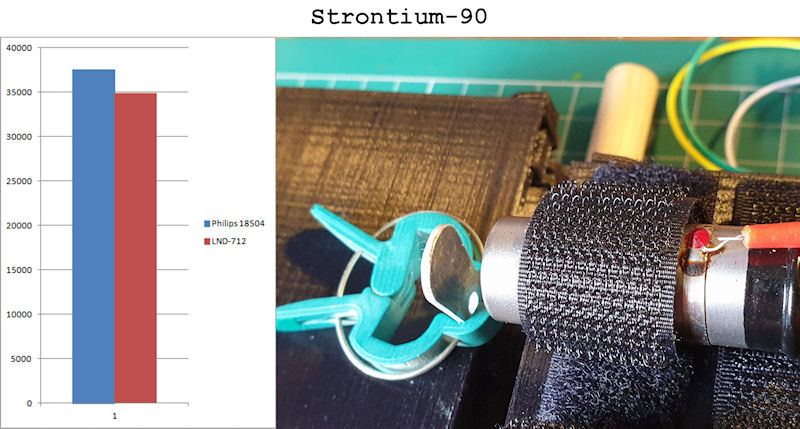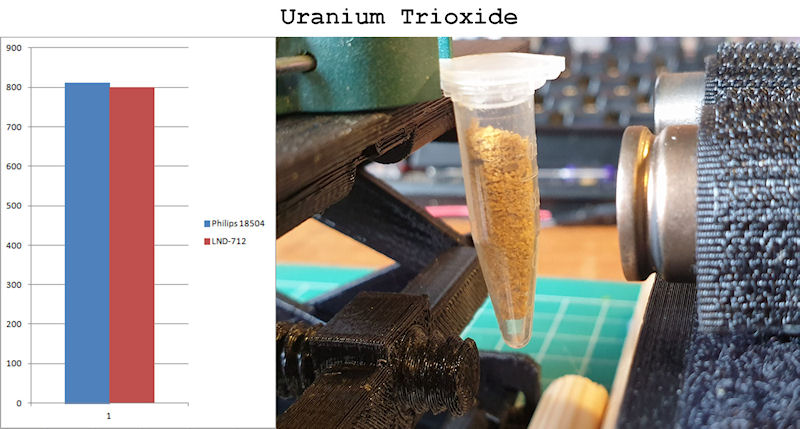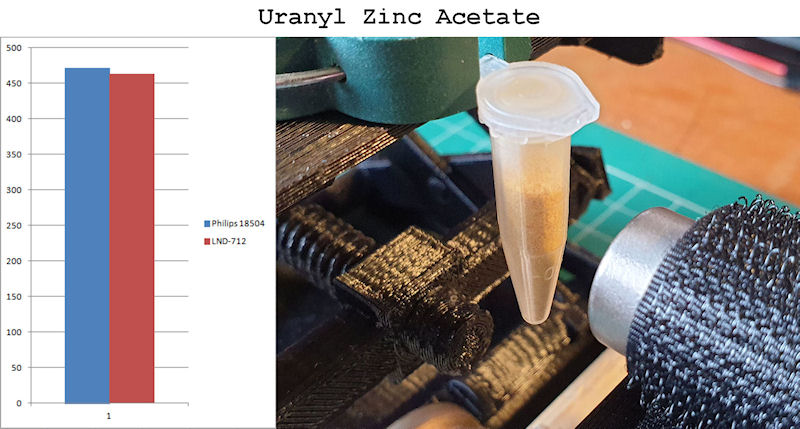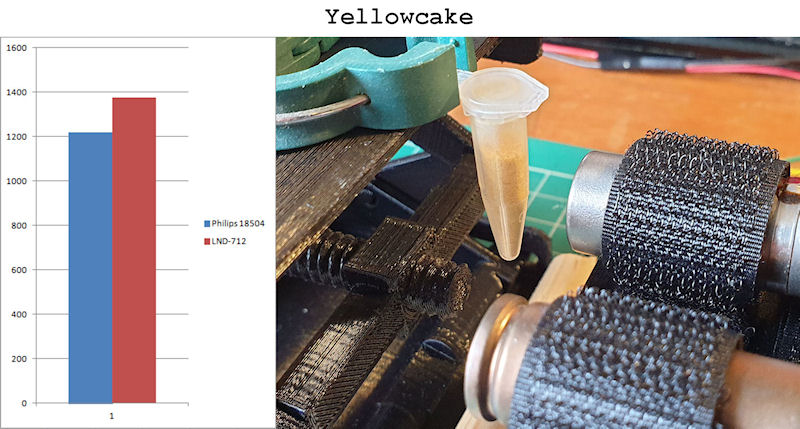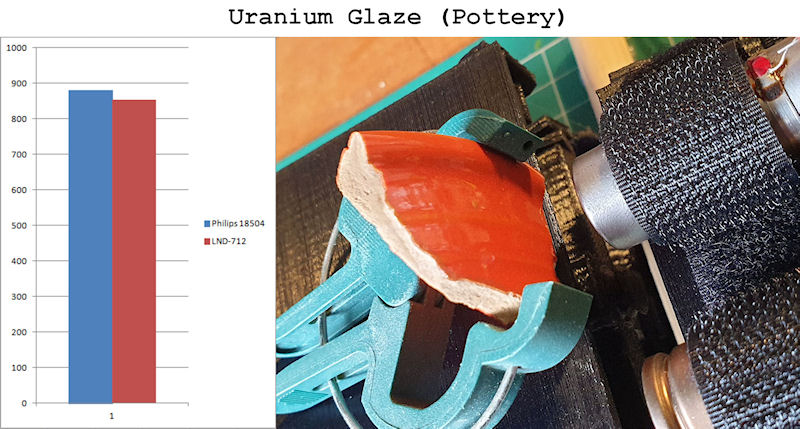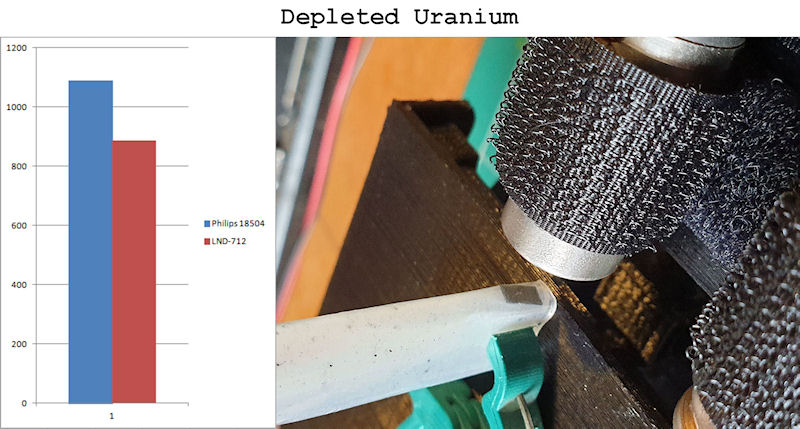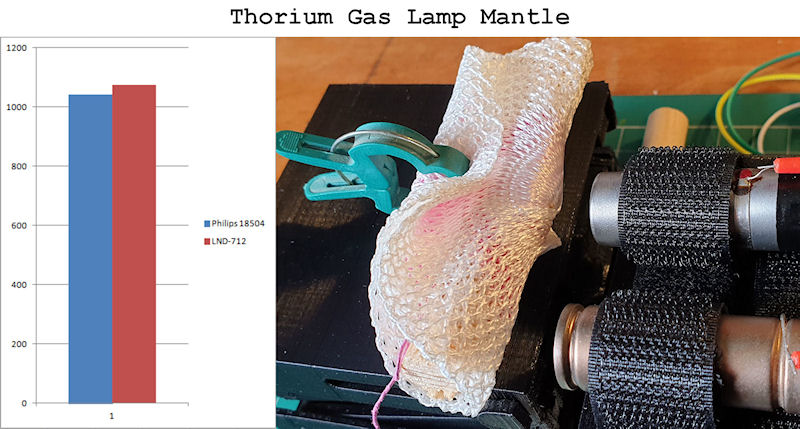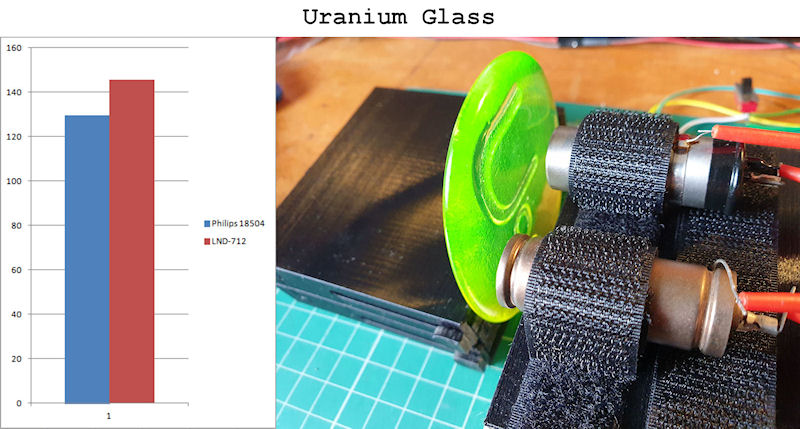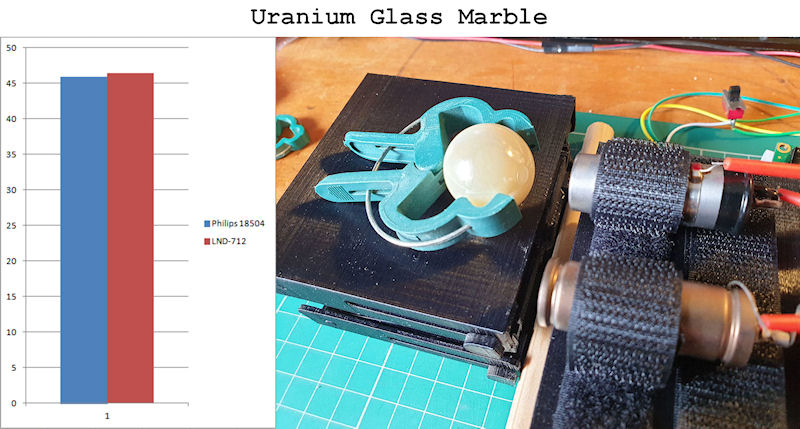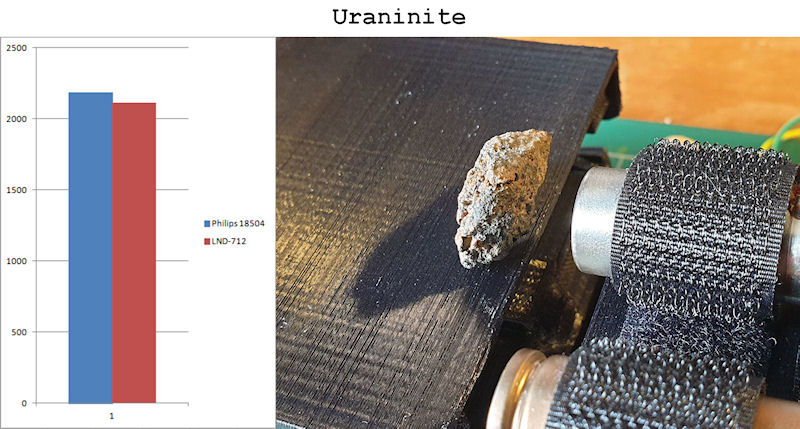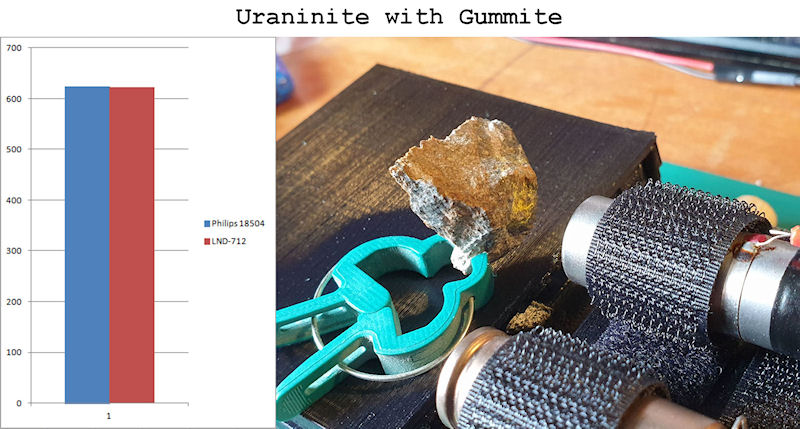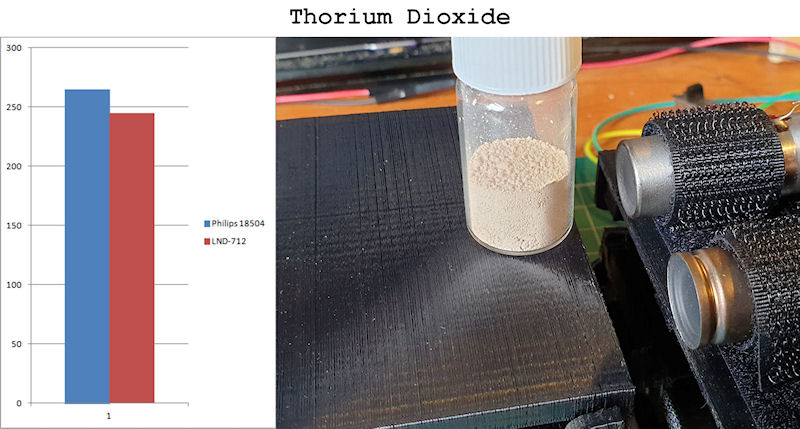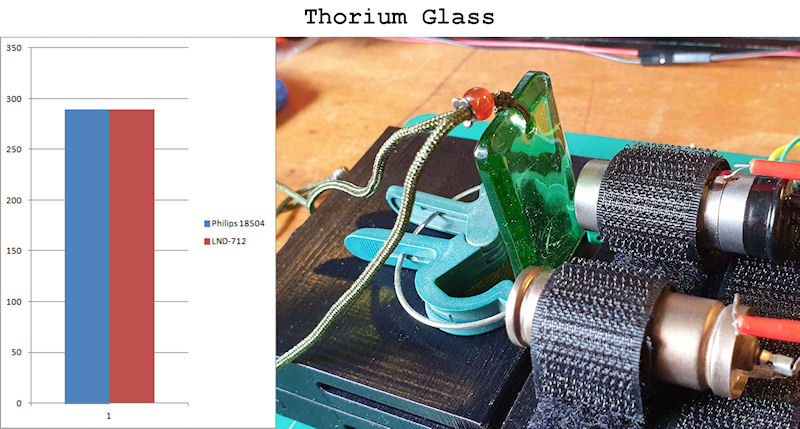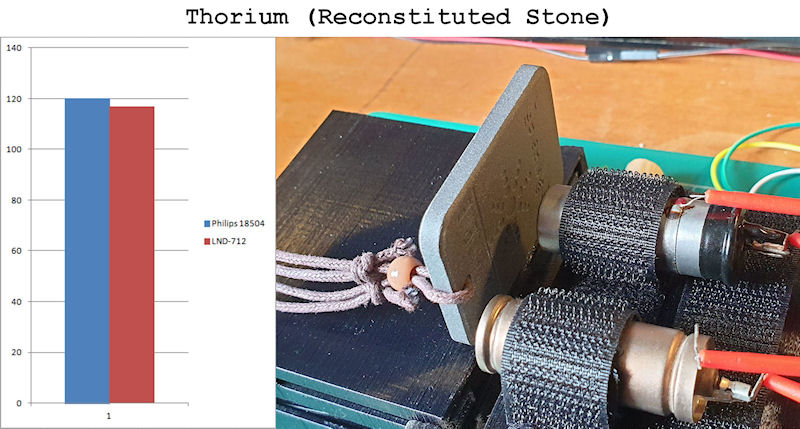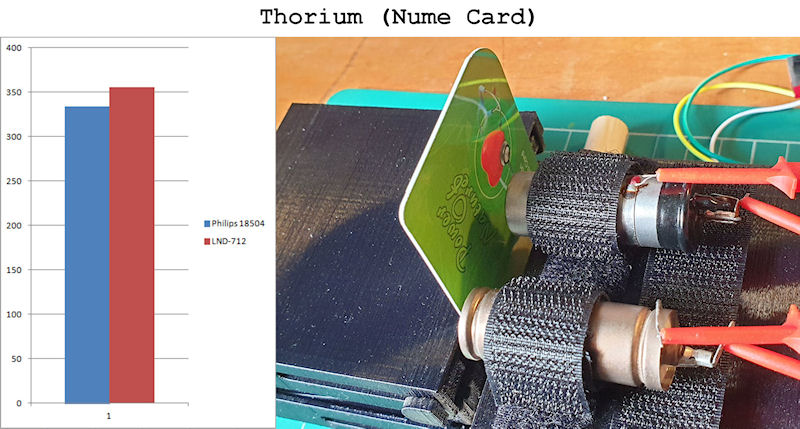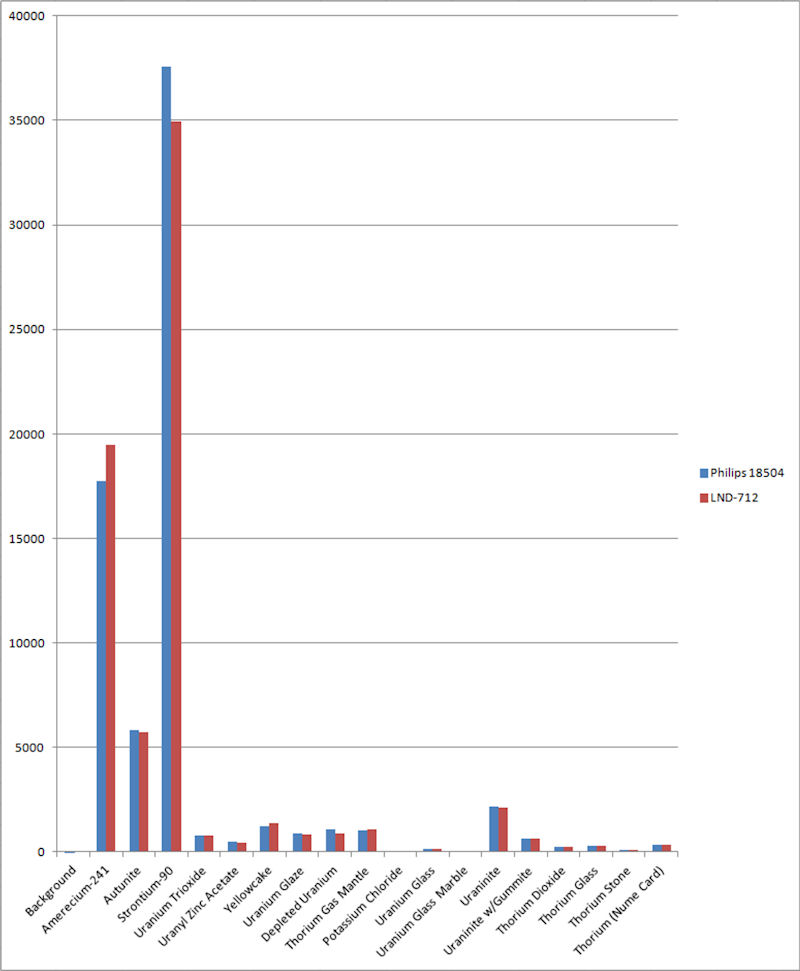Philips 18504 & LND-712 Comparison
1 year 10 months ago - 1 year 10 months ago #6936
by Simomax
I recently bought a Philips 18504 tube for about £30 (all in) on ebay from Bosnia. It is very similar to the LND-712 so I wanted to compare them. I knocked up a testing rig so the testing could be identical for each tube. All sources were measured at 1cm from the window on the tube. I used a RH Electronics Arduino IDE Geiger Counter DIY Kit ver.2 that I modified to give a pulse output. That goes into an ESPGeiger Log that I used for reading a 5 minute average for each test. The tests were conducted in a pretty controlled manner so the readings and difference between tubes should be fairly valid.
Both tubes run at 500v and with a 10Mohm anode resistor, so all that was needed was a simple SPST switch to switch between the tubes. The tubes and sources were mounted to little platforms that I can move up and down easily and I glued a piece of dowel to keep the platforms at the exact same distance which meant I could just slide one platform along to move the source from one tube to another.
The way I conducted the test was as follows:
Conclusion: Both tubes are very very similar. The maximum difference was 23.1% for Potassium Chloride and 23% for Depleted Uranium, the next largest differences were 11.3% and 11% respectively for Yellowcake and Uranium glass. All other results were less than 10% difference. The tubes are very similar having around the same dimensions, voltage and anode resistor specs. The Philips 18504 could be a direct drop-in replacement for the LND-712 or vice versa. I paid £70 for my LND-720 a few years back and I think they may be going for more than that now, if you can find them for sale. The Philips 18504 offers a very nice and very cost effective replacement for the LND-712, so if you are in the market for a alpha, beta & gamma tube then I would most certainly grab the Philips 18504 as they are much cheaper. But again, if you can find them. The supplier of the 18504 I bought quickly depleted their stock. There are 6 available (at the time of writing this) from a supplier on ebay here: https://www.ebay.com/itm/116068805881
These are pictures of the test rig:
These are the results (graphs below, including one with all of the sources on just to show how active the Sr-90 is!):
Philips 18504 & LND-712 Comparison was created by Simomax
Philips 18504 & LND-712 GM Tube
Comparison
Both tubes are α, β & γ - the Philips 18504 can also be used to detect neutrons if the tube is wrapped in Cadmium foil of about 0.5mm.
Both tubes are α, β & γ - the Philips 18504 can also be used to detect neutrons if the tube is wrapped in Cadmium foil of about 0.5mm.
I recently bought a Philips 18504 tube for about £30 (all in) on ebay from Bosnia. It is very similar to the LND-712 so I wanted to compare them. I knocked up a testing rig so the testing could be identical for each tube. All sources were measured at 1cm from the window on the tube. I used a RH Electronics Arduino IDE Geiger Counter DIY Kit ver.2 that I modified to give a pulse output. That goes into an ESPGeiger Log that I used for reading a 5 minute average for each test. The tests were conducted in a pretty controlled manner so the readings and difference between tubes should be fairly valid.
Both tubes run at 500v and with a 10Mohm anode resistor, so all that was needed was a simple SPST switch to switch between the tubes. The tubes and sources were mounted to little platforms that I can move up and down easily and I glued a piece of dowel to keep the platforms at the exact same distance which meant I could just slide one platform along to move the source from one tube to another.
The way I conducted the test was as follows:
- Load source onto left platform and line up with the center of the Philips 18504 tube.
- Reset ESPGeiger Log
- Sample for 5 minutes and note the 5 minute average
- Switch to LND-712 tube
- Slide source in front of the LND-712 tube
- Reset ESPGeiger Log
- Sample for 5 minutes and note the 5 minute average
- Switch back to Philips 18504 tube and load next source
- Lather, rinse, repeat....
Conclusion: Both tubes are very very similar. The maximum difference was 23.1% for Potassium Chloride and 23% for Depleted Uranium, the next largest differences were 11.3% and 11% respectively for Yellowcake and Uranium glass. All other results were less than 10% difference. The tubes are very similar having around the same dimensions, voltage and anode resistor specs. The Philips 18504 could be a direct drop-in replacement for the LND-712 or vice versa. I paid £70 for my LND-720 a few years back and I think they may be going for more than that now, if you can find them for sale. The Philips 18504 offers a very nice and very cost effective replacement for the LND-712, so if you are in the market for a alpha, beta & gamma tube then I would most certainly grab the Philips 18504 as they are much cheaper. But again, if you can find them. The supplier of the 18504 I bought quickly depleted their stock. There are 6 available (at the time of writing this) from a supplier on ebay here: https://www.ebay.com/itm/116068805881
These are pictures of the test rig:
These are the results (graphs below, including one with all of the sources on just to show how active the Sr-90 is!):
Source Philips 18504 LND-712 % Difference
Background 18.46 21.63 14.7
Amerecium-241 17748.17 19459.00 8.8
Autunite 5851.55 5752.44 1.7
Strontium-90 37543.63 34924.38 7.5
Uranium Trioxide 811.23 800.31 1.4
Uranyl zinc acetate 471.51 463.44 1.7
Yellowcake 1220.13 1375.88 11.3
Uranium Glaze 880.87 854.06 3.1
Depleted Uranium 1090.20 886.10 23.0
Thorium Gas Mantle 1041.33 1073.89 3.0
Potassium Chloride 29.93 38.90 23.1
Uranium Glass 129.49 145.56 11.0
Uranium Glass Ball 45.88 46.43 1.2
Uraninite 2186.72 2113.60 3.5
Uraninite W/Gummite 624.42 622.29 0.3
Thorium Dioxide 264.84 244.77 8.2
Thorium Glass 289.43 289.19 0.1
Thorium Pendant 120.24 116.89 2.9
Nume Card 333.67 355.62 6.2Attachments:
Last edit: 1 year 10 months ago by Simomax.
Please Log in or Create an account to join the conversation.
Moderators: Gamma-Man
Time to create page: 0.201 seconds

